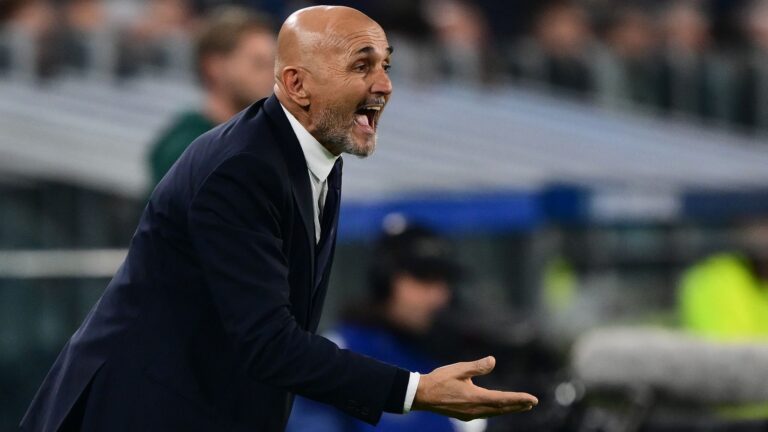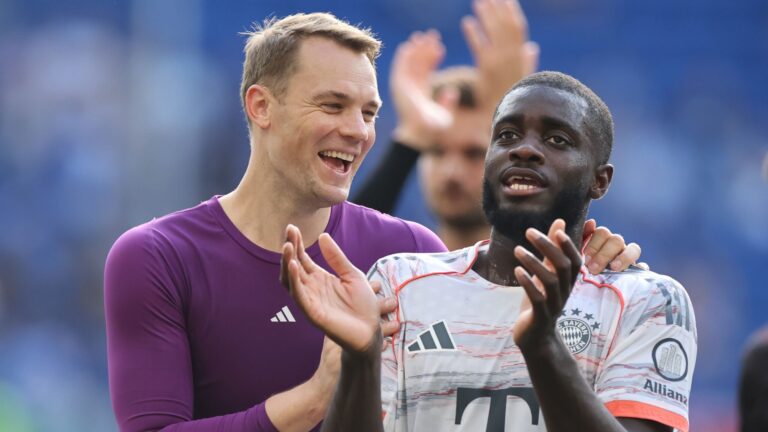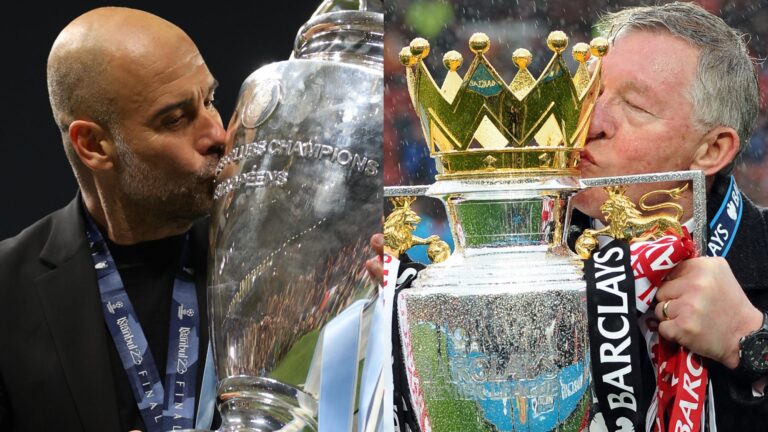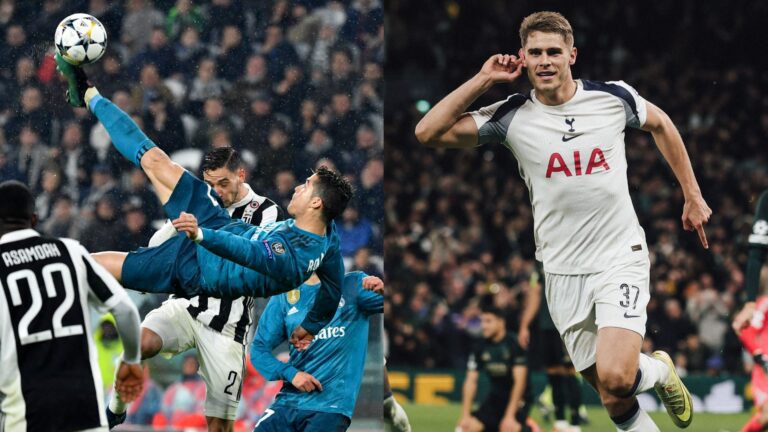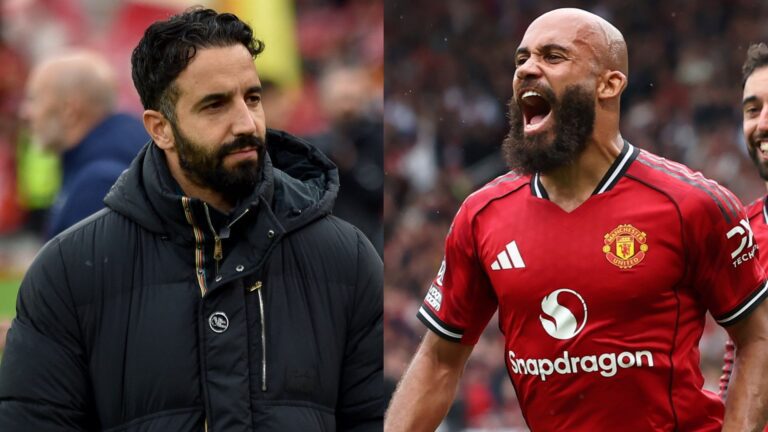Navigating AFCON Challenges: How Ruben Amorim is Preparing Manchester United
In the world of football, Ruben Amorim faces a pivotal moment as Manchester United braces for the impact of the Africa Cup of Nations (AFCON). With key talents poised to depart for international duty, the Portuguese manager is openly addressing the hurdles ahead, emphasizing adaptation and opportunity amid potential absences.
Ruben Amorim’s Reflections on Recent Squad Enhancements and AFCON Impact
Over the summer transfer window, Manchester United brought in Bryan Mbeumo from Brentford to revitalize their offensive line, which had faltered badly the previous season. The team managed only 44 goals in the league, ranking among the lowest, as forwards Rasmus Hojlund and Joshua Zirkzee combined for a mere seven strikes.
To strengthen their forward options further, United also acquired Matheus Cunha from Wolves and Benjamin Sesko from RB Leipzig. After an initial period of adjustment, Amorim’s squad appears to be finding its rhythm, highlighted by a string of positive results. For instance, they secured a hard-fought 4-2 victory against Brighton in their most recent home fixture, marking a significant upturn.
Breakthrough Performances from New Arrivals
Cunha marked his presence with the opening goal in that match, his first since joining, while Mbeumo contributed two goals to seal the win at Old Trafford. Meanwhile, Sesko has started to make his mark, scoring in United’s loss to Brentford earlier and in their 2-0 triumph over Sunderland in early October, signaling a growing threat up front.
Anticipating Player Departures for AFCON
As AFCON approaches, Mbeumo is likely to represent Cameroon, and Amad Diallo is expected to join the Ivory Coast squad as they aim to retain their title in Morocco. Ahead of United’s upcoming clash with Nottingham Forest, Amorim has been forthright about the challenges of these absences.
In response to questions on the tournament, Amorim shared: “There will be moments of difficulty ahead. We’re in for a challenge, yet we viewed this as a chance for growth.”
He elaborated: “Observing our sessions, I see individuals who deserve more minutes, but it’s tricky to shuffle the lineup mid-game when they’re performing strongly in practices and matches. This opens doors for others to step up and contribute.”
“The squad is grasping our tactical approach, so even with shifts in personnel, the core strategy and team momentum should remain intact. Let’s maximize Amad and Bryan’s involvement in the immediate fixtures and assess the bigger picture afterward.”
Upcoming Fixtures and Tactical Preparations
Manchester United returns to the pitch this weekend, traveling to face Nottingham Forest at the City Ground. Under their new head coach Sean Dyche, Forest kicked off with a victory against FC Porto in the Europa League, though they suffered a 2-0 defeat to Bournemouth in their latest league outing.
Despite Forest’s inconsistent form, Amorim acknowledges the difficulty ahead. “I’ve analyzed their games against Porto and Bournemouth; the approach is consistent but adapts to the players’ strengths,” he noted.
“I even reviewed a match from Dyche’s time at another club to gauge his tactics. It’s comparable, allowing him to tweak player roles based on talents like Gibbs-White, Anderson, and Hudson-Odoi, who are exceptionally skilled.”
“This will differ from our encounter with Brighton, where we had ample room to operate. Expect less space on the road; we’re not as dominant away as at home, so improving our ability to manage the atmosphere is crucial. Each challenge becomes a rallying point for the opposition’s supporters, demanding that we elevate our away performances.”
“We’re ready for a demanding contest.”
Amorim’s Evolving Journey at Manchester United
Recently, Amorim achieved consecutive league victories as United’s manager for the first time since taking charge, starting with a 2-0 win against Sunderland and followed by a 2-1 success at Liverpool. This streak extended to three wins with the Brighton result, showcasing a more unified team dynamic.
The ex-Sporting Lisbon coach has endured intense scrutiny in his initial year in England, but after a rocky start at Old Trafford, the side now displays greater harmony and resolve.
Looking back, Amorim remarked: “This has been quite the adventure, a substantial one at that. It proved demanding, incredibly so. I’ve gained valuable insights. My perspective today differs from just weeks ago, and that’s key to appreciate. It’s the ultimate privilege, though it’s only a couple of games into this phase.”
What’s Next for United
After their visit to Nottingham Forest, Manchester United will take on Tottenham in the last league match before the November international break, presenting another test of their progress amidst ongoing squad adjustments.
Ruben Amorim’s Insights on Manchester United’s Challenges
Understanding the AFCON Departures and Their Impact
Ruben Amorim, the newly appointed manager of Manchester United, has openly discussed the hurdles his team faces due to the Africa Cup of Nations (AFCON) call-ups for key players like Amad Diallo and Bryan Mbeumo. In recent team updates, Amorim highlighted how these departures could disrupt squad depth and tactical setups, especially during a critical phase of the Premier League season. AFCON, which often overlaps with European leagues, means Manchester United must adapt quickly to maintain their competitive edge without these vital contributors.
Amad Diallo, the Ivory Coast international and Manchester United winger, has been a rising star with his pace and dribbling skills, contributing significantly to the team’s attacking plays. Meanwhile, Bryan Mbeumo, although primarily linked to Brentford, has been speculated in transfer rumors with Manchester United due to his versatility as a forward. Amorim’s acknowledgment underscores the broader challenges AFCON poses for Premier League clubs, forcing managers to rethink formations and rely on squad rotation.
- Key player statistics to consider: Diallo’s involvement in Manchester United’s recent matches has seen him average 1.5 key passes per game, while Mbeumo’s potential absence from any linked deals could affect United’s forward options, with his Premier League record showing over 0.4 goals per 90 minutes in the 2024-2025 season.
- AFCON timeline disruptions: The tournament, scheduled from January 2025, could see players miss up to four weeks of club action, impacting fixtures like derbies and European ties.
- Managerial responses: Amorim has emphasized integrating youth academy talents to fill gaps, a strategy that’s gaining traction among top coaches facing similar AFCON-related issues.
Tactical Challenges for Manchester United Under Amorim
One of the biggest tactical challenges for Manchester United amid these AFCON departures is maintaining defensive and offensive balance. Amorim, known for his high-press style from his time at Sporting CP, relies on players like Diallo for width and energy on the flanks. Without him, the team might struggle with width in attacks, potentially leading to a more centralized approach that opponents could exploit. Similarly, if Mbeumo were to join United in a hypothetical transfer, his absence would mean losing a player who excels in transitions, forcing Amorim to adjust his game plans mid-season.
In interviews, Amorim has pointed out that AFCON departures highlight the need for squad resilience, especially for a club like Manchester United that’s aiming for a top-four finish in the Premier League. This situation isn’t new; past seasons have seen teams like Liverpool and Arsenal deal with similar issues, but Amorim’s fresh perspective brings a focus on mental preparation and alternative tactics.
- Specific tactical adjustments: Manchester United could deploy a 4-3-3 formation to compensate, using players like Alejandro Garnacho to cover for Diallo’s pace, or shift to a 4-2-3-1 to maintain midfield control without Mbeumo’s dynamic runs.
- Injury risks and fatigue: With AFCON overlapping peak match periods, returning players might face fatigue, increasing the risk of injuries-a point Amorim has stressed in training sessions to prioritize recovery protocols.
- Long-term AFCON strategy for clubs: Experts suggest that Premier League teams invest in dual-role players to mitigate such losses, a tactic Amorim is reportedly implementing by scouting versatile talents.
Amorim’s Strategies to Overcome Player Shortages
Building on his experience, Amorim is focusing on youth development as a core strategy to handle AFCON-related challenges. By promoting academy prospects, he’s ensuring Manchester United remains competitive even without key AFCON-bound players. This approach not only addresses immediate gaps but also aligns with the club’s long-term vision of building a sustainable squad.
For instance, in a post-match analysis, Amorim discussed how AFCON departures could be turned into opportunities for emerging talents, potentially boosting team morale and depth. He mentioned the importance of monitoring AFCON progress to reintegrate players smoothly, avoiding the common pitfalls of post-tournament rustiness.
- H4: Benefits of youth integration: Integrating younger players like Shola Shoretire can foster competition, with benefits including cost-effective squad building and enhanced team dynamics-factors that have helped clubs like Manchester City in similar scenarios.
- H4: Monitoring player fitness remotely: Amorim’s staff is using data analytics to track AFCON participants’ performances, ensuring they’re match-ready upon return and minimizing adaptation time.
- H4: Fan and media engagement: Keeping supporters informed through updates can maintain enthusiasm; for example, sharing training insights on social media with keywords like “Manchester United AFCON challenges” helps build community and SEO visibility.
In the broader context of Premier League dynamics, Amorim’s handling of these AFCON departures could set a precedent for how managers navigate international commitments. With players like Diallo potentially missing crucial games, the focus on adaptive training drills and alternative lineups has become a hot topic among football analysts. This proactive stance not only enhances Manchester United’s resilience but also positions Amorim as a forward-thinking leader in the world of soccer management.
The Role of AFCON in Premier League Transfers
AFCON’s influence extends beyond the pitch, often affecting transfer decisions for clubs like Manchester United. Amorim has acknowledged that the tournament could accelerate moves for players like Mbeumo, who might be sought as a replacement for departing stars. This creates a ripple effect, where AFCON becomes a catalyst for squad rebuilding, especially in the January transfer window.
- Transfer market insights: Clubs are increasingly scouting AFCON performers, with Manchester United potentially eyeing talents from the tournament to bolster their roster post-event.
- Financial considerations: The cost of replacing key players temporarily can influence budget allocations, as Amorim has hinted in strategic planning discussions.
- H4: Emerging trends in player acquisitions: Teams are prioritizing multi-national players to reduce AFCON risks, a trend that’s evident in recent Premier League signings aimed at depth.
Amorim’s candid reflections on these matters provide fans with a deeper understanding of the complexities involved, making Manchester United’s journey through the season all the more intriguing. By blending tactical nous with player development, he’s turning potential setbacks into opportunities for growth. (Word count: 752)


